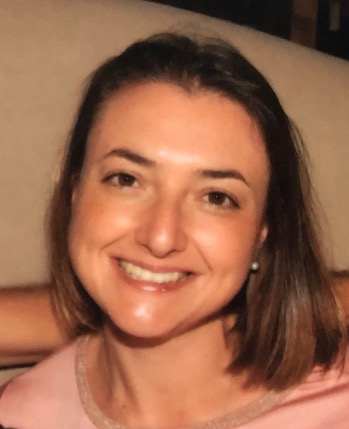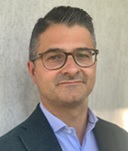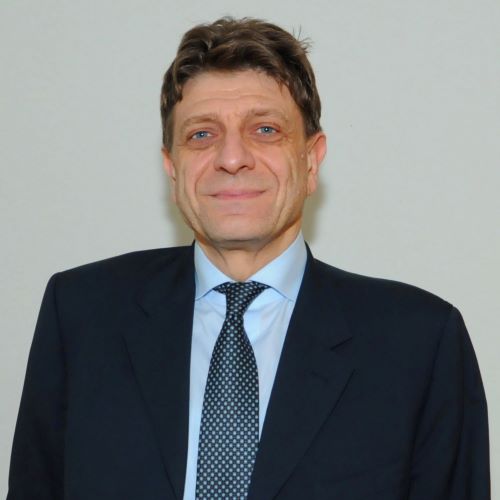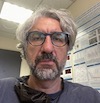Studying at the University of Verona
Here you can find information on the organisational aspects of the Programme, lecture timetables, learning activities and useful contact details for your time at the University, from enrolment to graduation.
Academic calendar
The academic calendar shows the deadlines and scheduled events that are relevant to students, teaching and technical-administrative staff of the University. Public holidays and University closures are also indicated. The academic year normally begins on 1 October each year and ends on 30 September of the following year.
Course calendar
The Academic Calendar sets out the degree programme lecture and exam timetables, as well as the relevant university closure dates..
| Period | From | To |
|---|---|---|
| 1° SEM Scienze nutraceutiche | Oct 3, 2022 | Jan 27, 2023 |
| Annuale Scienze nutraceutiche | Oct 3, 2022 | Jun 16, 2022 |
| 2° SEM Scienze nutraceutiche | Mar 6, 2023 | Jun 16, 2023 |
| Session | From | To |
|---|---|---|
| Sessione invernale d'esame | Jan 30, 2023 | Mar 3, 2023 |
| Sessione estiva d'esame | Jun 19, 2023 | Jul 31, 2023 |
| Sessione autunnale d'esame | Sep 4, 2023 | Sep 29, 2023 |
Exam calendar
Exam dates and rounds are managed by the relevant Medicine Teaching and Student Services Unit.
To view all the exam sessions available, please use the Exam dashboard on ESSE3.
If you forgot your login details or have problems logging in, please contact the relevant IT HelpDesk, or check the login details recovery web page.
Should you have any doubts or questions, please check the Enrollment FAQs
Academic staff
 elisa.artegiani@univr.it
elisa.artegiani@univr.it
 chiara.nardon@univr.it
chiara.nardon@univr.it
Study Plan
The Study Plan includes all modules, teaching and learning activities that each student will need to undertake during their time at the University.
Please select your Study Plan based on your enrollment year.
1° Year
| Modules | Credits | TAF | SSD |
|---|
2° Year activated in the A.Y. 2023/2024
| Modules | Credits | TAF | SSD |
|---|
3° Year It will be activated in the A.Y. 2024/2025
| Modules | Credits | TAF | SSD |
|---|
| Modules | Credits | TAF | SSD |
|---|
| Modules | Credits | TAF | SSD |
|---|
| Modules | Credits | TAF | SSD |
|---|
| Modules | Credits | TAF | SSD |
|---|
Legend | Type of training activity (TTA)
TAF (Type of Educational Activity) All courses and activities are classified into different types of educational activities, indicated by a letter.
General and food microbiology with laboratory (It will be activated in the A.Y. 2023/2024)
Teaching code
4S010598
Credits
9
Scientific Disciplinary Sector (SSD)
BIO/19 - MICROBIOLOGIA GENERALE
Learning objectives
The course is designed to introduce students to the basic knowledge of the microbial world as well as to illustrate the main methodological tools for research in microbiology, with a detailed comparison of the properties among the different type of microorganisms, both prokaryotes and eukaryotes, including bacteria, archaea, yeasts, filamentous fungi, and - in a distinct section, since non-cellular organisms – the viruses. During the first series of lectures, general themes will be addressed such as morphological and functional diversity, genetic, biochemical and metabolic features, evolutionary aspects and ecology of microorganisms, including how they interact with specific environmental factors. In the second series of lectures, microorganisms will be discussed as reference systems for fundamental studies dealing with molecular biology as well as biochemistry and metabolic regulatory mechanisms. Also elements will be provided about the methods for microbe cultivation and on strategies for the control of microbial growth and the conditioning of the metabolism. The third part of lectures will cover the detailed study of particularly important microbial groups to be defined with the Students.
The laboratory module is designed to guide students in the acquisition of techniques and in the development of manipulative skills all necessary for the identification and the study of both structural and functional characteristics of the microorganisms of interest, as well as for a proper handling of microbial cultures within research activities. The main objective of the module is to provide students with the basic tools, represented by traditional analytical procedures in microbiology, but also with the knowledge of advanced techniques, based on molecular methods of investigation, useful for basic research but even the definition of the correct approach to issues related to the many themes of applied microbiology.
Examination methods
There are no ongoing tests. The exam will consist of an oral assessment of the degree of learning achieved on the entire course program. The exam consists of three or four questions posed to each candidate. The exam has a total duration of approximately 30 minutes. The final evaluation is expressed out of thirty. At the end of the practice lessons the student should be draw up a report on the activity carried out in laboratory. The manuscript will be considered during the test.
Educational offer 2023/2024
You can see the information sheet of this course delivered in a past academic year by clicking on one of the links below:
Career prospects
Module/Programme news
News for students
There you will find information, resources and services useful during your time at the University (Student’s exam record, your study plan on ESSE3, Distance Learning courses, university email account, office forms, administrative procedures, etc.). You can log into MyUnivr with your GIA login details: only in this way will you be able to receive notification of all the notices from your teachers and your secretariat via email and soon also via the Univr app.
Orario lezioni
La frequenza in aula delle lezioni non è obbligatoria ma fortemente consigliata; tuttavia i singoli docenti sono liberi di richiedere un minimo di ore di frequenza per l’ammissibilità all’esame di profitto dell’insegnamento di cui sono titolari. In tal caso il controllo della frequenza alle attività didattiche è stabilito secondo modalità preventivamente comunicate agli studenti.
La frequenza alle attività di esercitazione, laboratorio e tirocinio è obbligatoria al 100%.
Poichè l'orario delle lezioni potrebbe subire variazioni, si consiglia di visualizzarlo settimanalmente.
L'orario del 2° semestre è disponibile su MyUniVR: le modifiche al piano settimanale sono segnalate di seguito.
1° ANNO
Da mercoledì 22 maggio 2024 compreso NO Fisiologia umana
Mercoledì 22 maggio 2024 NO Biochimica della Nutrizione
Chimica Organica LABORATORIO: previste anche le due mattine di mercoledì 22 maggio e mercoledì 5 giugno (9:30-13:30)
2° ANNO
Farmacologia: il mercoledì mattina c’è lezione in data 24/04/2024, 22/05/2024 e 05/06/2024
La lezione di martedì 30 aprile viene posticipata alle 15:30 in Ca' Vignal 3 - aula Magna.
Lezioni di recupero:
- giovedì 02/05/2024 ore 14:30 - 16:30 in Ca' Vignal 2 - aula L
- martedì 23/05/2024 ore 8:30 - 12:30 in Ca' Vignal 3 - aula 1.02
- giovedì 30/05/2024 ore 10:30 - 12:30 in Ca' Vignal 3 - aula 1.02
Tecnologie e legislazione farmaceutica e dei prodotti per la salute secondo il prospetto seguente:
| APRILE | Mer | Gio | Ven | Lun | Mar | Mer | Gio | Ven | Lun | Mar | Mer | Gio | Ven | Lun | Mar | Mer | Lun | Mar |
| 3 | 4 | 5 | 8 | 9 | 10 | 11 | 12 | 15 | 16 | 17 | 18 | 19 | 22 | 23 | 24 | 29 | 30 | |
| 16.30-17.30 | CV3 Magna | CV3 T.05 | CV3 Magna | CV3 T.05 | CV3 Magna | CV3 Magna | CV3 T.05 | CV3 Magna | CV3 Magna | |||||||||
| 17.30-18.30 |
Maggio secondo indicazioni su MyUniVR con l'aggiunta delle seguenti lezioni:
- lunedì 3 ore 8:30-10:30 e lunedì 13 ore 8:30-11:30 in CV3 aula T.06
- lunedì 20 - 27 ore 8:30-11:30 in CV3 aula T.05
- martedì 7 - 14 - 28 ore 15:30-18:30 in CV3 aula Magna
- mercoledì 8 -15 ore 16:30-18:30 in CV3 aula Magna e mercoledì 28 ore 15:30-18:30 in CV3 aula Magna
- venerdì 10 - 17 - 24 - 31 ore 16:30 - 19:30 in CV3 aula T.05
Giugno: venerdì 7 -14 - 21 -28 ore 16:30 - 19:30 in CV3 aula T.05
Chimica farmaceutica per l'alimentazione CONTROLLO DI QUALITÀ DEI PRODOTTI DIETETICI E ALIMENTARI E LABORATORIO Laboratorio Inizio da lunedì 15 aprile 2024
Chimica farmaceutica per l'alimentazione PREPARAZIONI ESTRATTIVE E LABORATORIO Laboratorio Inizio da giovedì 16 maggio 2024
Student login and resources
Recupero degli Obblighi Formativi Aggiuntivi
La verifica del possesso delle conoscenze di base (saperi minimi) necessarie per poter frequentare il corso con profitto avviene, contestualmente alla prova di ammissione, sostenendo un TOLC-B su quesiti di Biologia, Chimica, Fisica, Matematica di base, Inglese. Nel caso in cui nel TOLC-B non vengano raggiunti punteggi uguali e superiori al 40% del punteggio massimo previsto per una qualsiasi delle materie previste, saranno attribuiti i relativi obblighi formativi aggiuntivi (OFA).
Corsi integrativi delle cinque materie saranno organizzati nel primo semestre con frequenza obbligatoria. L’assolvimento dell’obbligo è requisito obbligatorio per l’ammissione agli esami del primo semestre.
Assegnazione degli Obblighi Formativi Aggiuntivi
Gli Obblighi Formativi Aggiuntivi che lo studente dovrà effettivamente sostenere saranno aggiornati sulla sua pagina personale entro novembre 2023
Modalità di Recupero degli Obblighi Formativi Aggiuntivi
MATEMATICA
Materiale di studio: disponibile tramite moodle
Per coloro che non hanno superato il test, sarà effettuato un quarto esame venerdì 28 giugno 2024 ore 10:00 in Lente Didattica - aula 5
FISICA
Materiale di studio su JOVE
Data del test: mercoledì 6 dicembre 2023 ore 11.30 in aula H Ca' Vignal 2 - strada Le Grazie 8
BIOLOGIA
Materiale di studio su JOVE
Data del test: mercoledì 24 gennaio 2024 ore 14.00 in aula H - Ca' Vignal 2
CHIMICA
Materiale di studio su JOVE
Data del test: giovedì 23 novembre 2023 ore 11.00 in aula H - Lente Didattica
Modalità di frequenza
Non vi è un obbligo generalizzato di frequenza alle lezioni, ma è fortemente consigliata; tuttavia i singoli docenti sono liberi di richiedere un minimo di ore di frequenza per l’ammissibilità all’esame di profitto dell’insegnamento di cui sono titolari. In tal caso il controllo della frequenza alle attività didattiche è stabilito secondo modalità preventivamente comunicate agli studenti.
La frequenza alle attività di esercitazione, laboratorio e tirocinio è obbligatoria al 100%.
Competenza linguistica - Lingua Inglese
Per la competenza linguistica, è prevista il livello B1
Per la coorte 2023/2024:
L'insegnamento di lingua inglese sarà erogato in modalità convenzionale.
Il corso (annuale) si tiene il giovedì mattina dalle ore 8.30 alle ore 11.30 nella sede di Ca' Vignal 3 - aula T.05
La verbalizzazione dell'esame può essere richiesta alla Segreteria Didattica del Corso, inviando il certificato rilasciato dal CLA.
Per la coorte 2022/2023:
Il piano didattico del corso di Studio prevede l’acquisizione di 4 CFU di Lingua straniera, che corrispondono a una competenza linguistica di livello B1 informatizzato.
I crediti di lingua straniera si ottengono frequentando uno dei corsi organizzati dal CLA – Centro Linguistico di Ateneo https://cla.univr.it/it/didattica#EsercitazioniLing - consultando l'offerta nel sito per le iscrizioni e l'orario delle lezioni.
La verbalizzazione dell'esame può essere richiesta alla Segreteria Didattica del Corso, inviando il certificato rilasciato dal CLA.
►Gli studenti già in possesso di certificazioni linguistiche ottenute presso enti esterni possono richiedere il certificato di equipollenza al CLA, in modo che l'idoneità linguistica sia registrata e risulti nel libretto elettronico. Per accedere al servizio cliccare il link:
https://cla.univr.it/it/servizi/riconoscimento-delle-certificazioni-linguistiche-esterne
Per informazioni sulla registrazione a libretto, contattare la Segreteria didattica
La prova si svolgerà presso il laboratorio linguistico del centro (aula S.5, piano -1, Polo Zanotto) nei giorni indicati nel calendario delle prove. Le iscrizioni si raccolgono come descritto nella sezione ISCRIZIONI ALLE PROVE. I calendario dei turni verrà pubblicato il giorno successivo alla chiusura delle iscrizioni nelle tabelle dedicate alle varie lingue in fondo alla pagina.
L'accesso al laboratorio verrà gestito dallo staff del CLA.
Prova Finale
Per essere ammessi alla prova finale occorre avere conseguito tutti i crediti nelle attività formative previste dal piano degli studi, compresi quelli relativi all’attività di tirocinio. Alla preparazione della tesi sono assegnati 5 CFU. La prova finale si compone di redazione e dissertazione di un elaborato di tesi. Lo studente per il lavoro di tesi avrà la supervisione di un docente della Scuola di Medicina e Chirurgia o della Scuola di Scienze e Ingegneria detto Relatore, ed eventuali correlatori in possesso almeno della laurea triennale anche se esterni al Corso di Laurea. Scopo della tesi è quello di impegnare lo studente in un lavoro di formalizzazione, progettazione e di ricerca, che contribuisca sostanzialmente al completamento della sua formazione professionale e scientifica. Il contenuto della tesi deve essere inerente a tematiche o discipline strettamente correlate al profilo professionale. Si ricorda che presentare tesi copiate o procurate da altri costituisce reato. (Legge 475/1925 tutt’oggi in vigore).
Valutazione della tesi
La valutazione della tesi sarà basata sui seguenti criteri: livello di approfondimento del lavoro svolto; contributo critico del laureando; accuratezza della metodologia adottata per lo sviluppo della tematica.
Punteggio finale
Il punteggio finale di Laurea è espresso in cento decimi ed è formato:
• Media ponderata rapportata a 110 dei voti conseguiti negli esami curriculari (arrotondata per eccesso o per difetto al numero intero più vicino);
• Discussione della Tesi: da 0 fino ad un massimo di 5 punti per tesi compilativa; da 0 fino ad un massimo di 10 punti per tesi sperimentale.
La commissione di Laurea potrà attribuire ulteriori punti anche in base a:
• Presenza di eventuali lodi ottenute negli esami sostenuti fino ad 1 punto aggiuntivo;
• Partecipazione ai programmi Erasmus fino a 2 punti aggiuntivi;
• Laurea entro i termini della durata normale del corso 2 punti aggiuntivi.
La lode può venire attribuita con parere unanime della Commissione ai candidati che conseguano un punteggio finale maggiore o uguale a centodieci. È prevista la possibilità per lo studente di redigere l'elaborato in lingua inglese.
Competenze informatiche
L’acquisizione di CFU F per abilità informatiche può avvenire con le seguenti modalità:
- Corso in autoapprendimento via moodle organizzato da Direzione sistemi informativi e tecnologici (UniVR), con test informatizzato a risposta multipla.
Argomenti del test:
1 - Concetti teorici di base
2 - Uso del Computer e gestione dei file
3 - Elaborazione e presentazione testi (Office di Microsoft , LibreOffice, Word -PowerPoint etc...)
4 - Foglio elettronico (Office di Microsoft , LibreOffice)
5 - Internet (protocolli, browser, posta elettronica ...)
6 - Accessibilità dei documenti
7 - Firma digitale
I test si svolgono solo in presenza in Aula Win S1 - Polo Zanotto. Per sostenere la prova è necessario che le credenziali GIA di Ateneo siano funzionanti. Non è possibile utilizzare lo SPID.
Modalità di svolgimento: Test a risposta multipla, 30 domande 40 minuti di tempo per la prova. La prova viene superata rispondendo in modo corretto ad almeno 24 domande su 30. Non c'è voto, ma solo "Idoneo" - "Non idoneo".
Preparazione: trattandosi di un corso in auto-apprendimento non ci sono lezioni frontali, per la preparazione si consiglia di consultare:
- un manuale per la preparazione agli esami ECDL
- il materiale, riguardante i fogli elettronici e l'elaborazione dei testi, pubblicato sul sito Microsoft all'indirizzo web: http://office.microsoft.com/en-us/support/?av=zxl alla voce top solutions -> Office training e https://support.office.com/it-it. Per LibreOffice consultare il sito ufficiale: http://www.libreoffice.org
Sono inoltre disponibili dei test di verifica sui quali esercitarsi.
Per maggiori informazioni contattare la Segreteria Didattica.
- Frequenza di corsi attivati da scuole e centri accreditati dall’AICA (Associazione Italiana per l’Informatica e il Calcolo Automatico) o riconosciuti da Provincia, Regione, ecc.
Verranno riconosciuti 3 CFU F di competenza informatica, indipendentemente dal tipo di certificazione (ECDL base, ECDL standard, ECDL full, ICDL, ICDL full...), purché il richiedente abbia conseguito almeno 4 moduli stile ECDL.
Validità: 5 anni dalla data del rilascio del certificato.
Un’apposita Commissione valuterà i documenti prodotti dallo studente.
Compilazione piani di studio - attività a scelta
Le attività a scelta dello studente (12 CFU, ambito D) comprendono insegnamenti impartiti presso l’Università di Verona.
Per la coorte 2022/2023, la compilazione del piano didattico potrà avvenire dal 25/09/2023 al 30/06/2024.
ELENCO ATTIVITÀ AL 2° ANNO A.A. 2023/2024:
Biochimica e biochimica analitica 12 CFU – L BIOTECNOLOGIE (S21)
Biologia molecolare 6 CFU – L BIOINFORMATICA (S23)
Biologia molecolare 9 CFU – L BIOTECNOLOGIE (S21)
Biochimica vegetale 6 CFU – L BIOTECNOLOGIE (S21)
Elementi di Chimica fisica 6 CFU – L BIOTECNOLOGIE (S21)
Laboratorio di biologia molecolare 6 CFU – L BIOINFORMATICA (S23)
Organismi modello di interesse biotecnologico 6 CFU – L BIOTECNOLOGIE (S21)
Tecniche analitiche di chimica clinica 6 CFU – L BIOTECNOLOGIE (S21)
ELENCO ATTIVITÀ AL 2° ANNO A.A. 2024/2025:
Oltre alle attività precedentemente citate, potranno essere selezionate quelle già previste nei gruppi di scelta al 3° anno, in modo da consentire agli studenti di sostenere in TAF D quelli non scelti precedentemente.
Potranno essere aggiunte, inoltre, nel corso dell’anno eventuali seminari/attività varie/convegni previo accreditamento.
Il riconoscimento di tali CFU dovrà essere valutato dalla Commissione Didattica sulla base della coerenza delle attività scelte rispetto al percorso formativo del corso di studio. I crediti a scelta non sono vincolati, ma, in sede di valutazione finale, si tiene conto della coerenza e dell’adeguatezza delle scelte effettuate dallo studente nel quadro formativo complessivo. Pertanto è raccomandato di non scegliere attività che possano in gran parte risultare simili ad insegnamenti già presenti nel piano didattico del CL in SNSA, bensì di scegliere attività che apportino un reale arricchimento del percorso formativo.
COMPETENZE TRASVERSALI - TALC
Sono percorsi formativi finalizzati all’acquisizione di competenze trasversali utili sia dal punto di vista personale e lavorativo sia di civic engagement, promossi dal Teaching and Learning Center dell’Ateneo: su questa pagina web sono pubblicate tutte le informazioni utili.
Appelli d'esame
Per gli insegnamenti di Competenza linguistica - Inglese B1 e Abilità Informatiche, consultare le pagine dedicate (menu a sinistra).
Gli appelli della sessione estiva e autunnale sono in aggiornamento.
Documents
| Title | Info File |
|---|---|
|
|
pdf, it, 268 KB, 15/04/24 |
|
|
pdf, it, 271 KB, 15/04/24 |
Tirocinio formativo
Il percorso formativo prevede una attività di tirocinio-stage da effettuare presso strutture pubbliche o private convenzionate con l'Università degli Studi di Verona.
Il conseguimento dei crediti relativi all’attività di tirocinio è obbligatorio per essere ammessi alla prova finale.
Le attività di stage/tirocinio professionale devono essere preliminarmente concordate, e successivamente certificate, da parte del docente responsabile o tutore, unitamente alla valutazione degli obiettivi didattici prefissati e all’acquisizione dei relativi crediti.
Per eventuali infortuni:
dal 1° marzo 2024 la documentazione e la certificazione medica degli infortuni di studenti dovrà essere trasmessa esclusivamente mediante l’utilizzo del questionario online su piattaforma Elix form accessibile dal seguente link:
https://www.univr.it/it/organizzazione/tecnica-e-logistica/logistica/servizi-logistici
pertanto la modalità cartacea sarà dismessa e non verranno prese in considerazione altre modalità di trasmissione.
Il questionario deve essere compilato a seguito di infortunio per la comunicazione obbligatoria al datore di lavoro.
La segnalazione dell’infortunio deve essere fatta anche per lesioni di lieve entità o prognosi da uno a tre giorni.


 +39 045 802 7949
+39 045 802 7949








